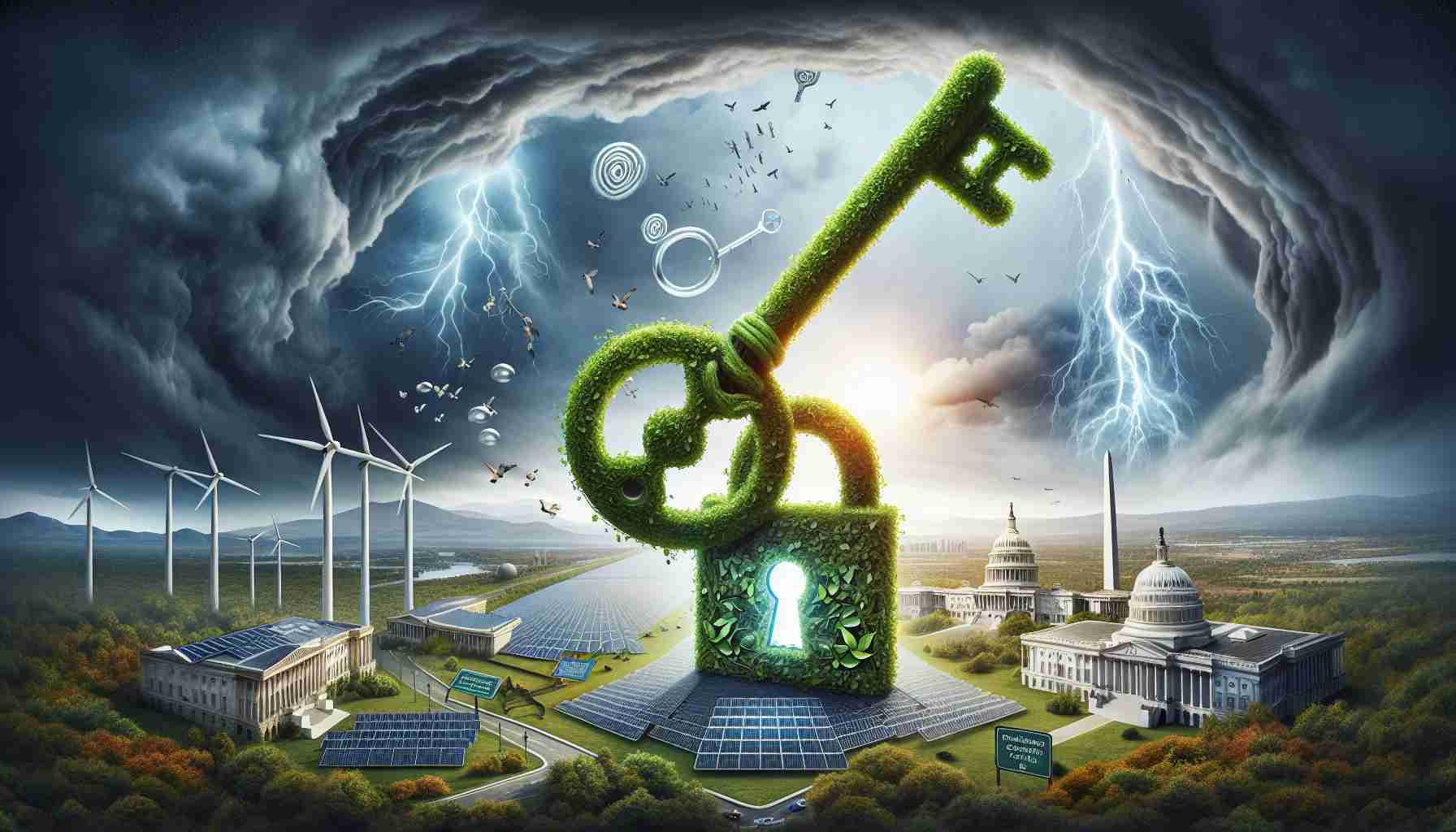- Washington is transitioning from fossil fuels to renewable energy, significantly focusing on green hydrogen.
- Green hydrogen has the potential to decarbonize sectors such as aviation and heavy-duty transport.
- A draft environmental impact statement addresses the implications and strategies for green hydrogen production and storage.
- Public feedback is invited over a 30-day review period, emphasizing community involvement.
- Hydrogen extraction through electrolysis presents a clean energy alternative to natural gas.
- The study acts as a guideline for stakeholders in decision-making regarding green hydrogen facilities.
- Final reports will be submitted to the Washington Legislature by June 30, reinforcing the state’s commitment to clean energy innovation.
In a bold move to combat climate change, Washington is making waves by transitioning from fossil fuels to clean, renewable energy sources. Electricity producers are harnessing the power of the sun and wind, but that’s just the beginning. Enter green hydrogen, a game-changing fuel set to revolutionize hard-to-decarbonize sectors like aviation and heavy-duty transport.
In a recent statewide effort, officials released a draft environmental impact statement that explores the potential of green hydrogen production and storage. This comprehensive study not only highlights the expected environmental impacts but also proposes effective mitigation strategies. Now, the public has 30 days to review and comment on these pivotal findings.
Imagine the power of hydrogen: the most abundant element in the universe, capable of delivering more energy per unit than natural gas. However, extracting pure hydrogen from compounds like water involves advanced processes, such as electrolysis, which splits water into hydrogen and oxygen using electricity. This process could be key to powering everything from ships to homes, offering a cleaner alternative to fossil fuels.
This study serves as a vital roadmap for developers, regulators, Tribes, and the community, guiding them in making informed decisions about green hydrogen facilities. With the final reports to be presented to the Washington Legislature by June 30, the state is poised to lead the charge in clean energy innovation.
As Washington embraces these groundbreaking changes, the message is clear: the future of energy is green, and it’s hydrogen. Join the conversation—your voice matters in shaping this sustainable journey!
Unleashing the Power of Green Hydrogen: The Future of Sustainable Energy in Washington
Green Hydrogen: An Overview
In a bold move to combat climate change, Washington is shifting gears from fossil fuels to innovative renewable energy sources. Among the front-runners in this transition is green hydrogen, a revolutionary fuel that promises to significantly impact sectors such as aviation and heavy-duty transport.
What Makes Green Hydrogen Stand Out?
Green hydrogen’s production mainly involves the electrolysis of water, a process powered by renewable energy sources. This method not only produces hydrogen but does so with minimal environmental impact, marking a sustainable alternative to traditional fossil fuels.
Environmental Impact Studies and Public Involvement
Recently, Washington has released a draft environmental impact statement focused on green hydrogen production and storage. This comprehensive document highlights several key aspects:
– Environmental Impacts: The study assesses potential effects on ecosystems and local communities.
– Mitigation Strategies: It proposes various strategies to minimize negative impacts.
– Public Review: Residents are encouraged to review the findings and voice their opinions for 30 days.
This public engagement is critical for fostering community support and ensuring that diverse perspectives are considered in energy planning.
Features and Limitations of Green Hydrogen
Features:
– Clean Energy Source: When burned, it produces water vapor instead of carbon emissions.
– High Energy Density: Offers more energy per unit than natural gas.
Limitations:
– Cost of Production: Currently, green hydrogen production is more expensive than fossil fuels.
– Infrastructure Needs: Development of distribution and storage systems requires significant investment.
Market Insights and Future Predictions
The global market for hydrogen is expected to see exponential growth, driven by increasing demand for clean energy solutions and governmental incentives aimed at reducing carbon emissions. By 2030, the hydrogen economy could be worth hundreds of billions of dollars, with Washington at the forefront of this transformation.
Key Questions About Green Hydrogen
1. How does green hydrogen contribute to decarbonization?
Green hydrogen plays a pivotal role by providing a zero-emission alternative to fossil fuels for industries that are hard to electrify, such as shipping and aviation.
2. What are the challenges in scaling green hydrogen production?
Challenges include high production costs, the need for technological advancements in electrolysis, and the necessity for a robust storage and transportation infrastructure.
3. What can the public do to support the green hydrogen initiative?
Engaging in public comment periods, advocating for sustainability policies, and supporting local green energy projects can significantly aid in the initiative.
Related Links
For more information about this initiative and ongoing developments in renewable energy in Washington, visit Washington State Energy Office.
In conclusion, Washington’s shift towards green hydrogen not only paves the way for a more sustainable energy future but also encourages community involvement and innovation in energy solutions. This is your chance to stay informed and participate in a pivotal moment in clean energy advancement!
